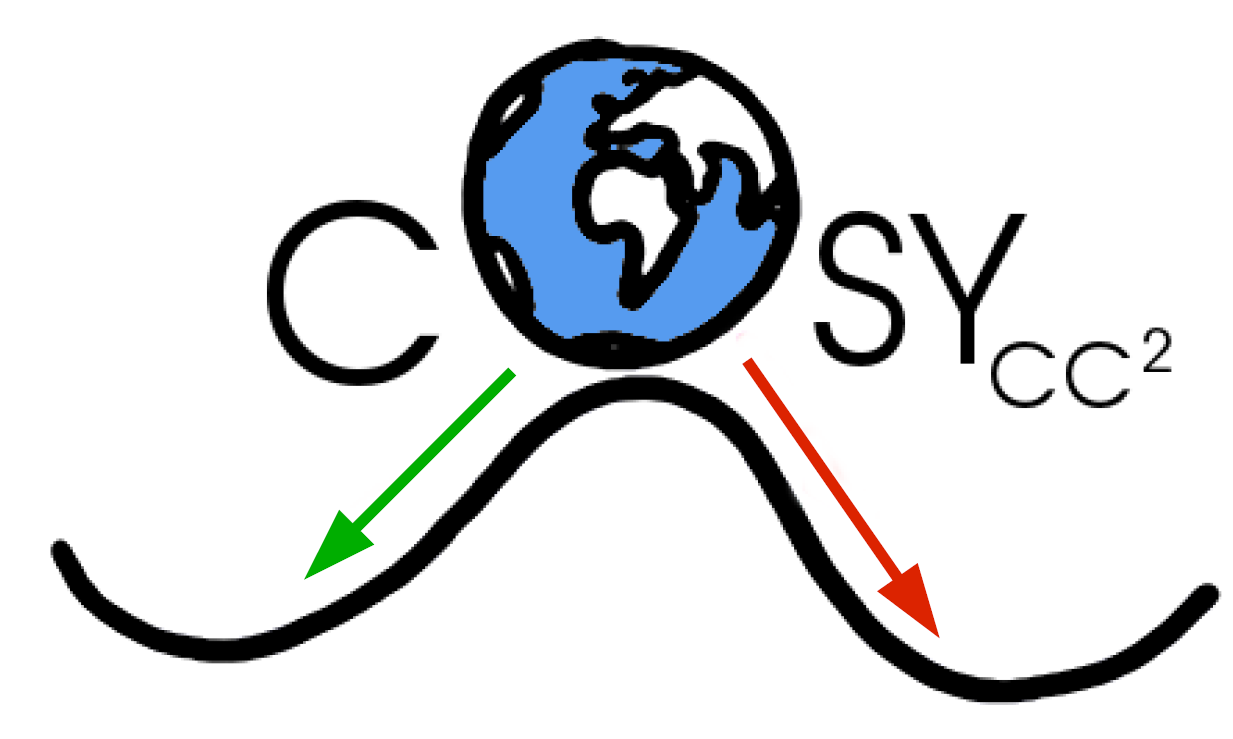Aims and Scopes
The term "global change" commonly refers to fundamental modifications of climate, ecology and/or
socio-economy regarding both the systems` (average) states and dynamics. These changes act on
a variety of spatial and temporal scales and potentially lead to qualitative transformations, which
can affect human societies to a considerable extent. In addition to these multiple involved scales,
the scientific challenge of studying global change is accomplished by the fact that the dynamics of
climate, ecology and socio-economy is very complex and involves multiple nonlinear interactions
between (i) the aforementioned large-scale systems, (ii) their individual subsystems (e.g.,
atmosphere, hydrosphere, or biosphere), and (iii) internal (natural) and externally induced
(anthropogenically forced) dynamics.
This project contributes important knowledge about global change related risks and
transformations and their sustainable management. Specifically, it provides a novel methodological
framework and subsequent analyses for (i) identifying and understanding the relevant processes
determining the ongoing changes in climate dynamics as well as socio-economy, and (ii)
systematically assessing the potentials and systemic risks of potential measures for keeping the
systems away from critical situations such as dynamical tipping points.
Regarding the methodological framework to be developed, the necessity of better understanding
the causes and consequences of global change in climate and society requires a holistic and
systemic approach to studying the multiple causal interdependences within as well as between the
affected systems. In order to achieve this task, this project takes advantage of recent
developments from complex systems sciences, specifically nonlinear time series analysis and
complex network theory, in order to first develop modern methods for analysis and conceptual
modeling based on available data. Subsequently, these methods are applied for investigating
fundamental research questions regarding climate variability as well as causal interdependences
betweenpolitical decisions and their consequences for climate, environment, and economy detailed
in the research plan.
The CoSy-CC2 project does not primarily focus on a highly detailed and realistic modeling of the complex
system Earth and human society as a whole, but aims to identify and further study specific
components that have a particular relevance for the stability of the overall system and the
existence of sustainable transformation pathways. The proposed conceptual approach does not
only allow answering several important research questions in climatology (scientific utilization), but
also delivers new widely applicable conceptual approaches helping decision makers to evaluate
possible consequences of certain actions for the stability of the system prior to their
implementation (economic/political utilization).
Scientific and technical aims
Dynamics and stability of "nature" and "society" as two considerably complex systems have mostly
been studied separately so far. This viewpoint has widely ignored the existing complex
interdependences between climate, ecology and socio-economy, which call for a holistic treatment
of global change related problems. In this spirit, structural and dynamical complexity is a crucial
factor that needs to be better understood in order to avoid or at least minimize and manage
unavoidable global change in different areas as well as gain a systemic understanding of the
impacts of possible actions.
Recent methodological advances from complex systems sciences
allow systematically evaluating the mutual interdependences between different components,
processes and associated spatio-temporal scales of high-dimensional dynamical systems. This
project is based on these developments, which are thoroughly adopted and used to achieve the
following scientific goals (see research plan for details):
1. Novel concepts from nonlinear time series analysis and complex network theory are
collected, implemented and subsequently extended to develop a widely applicable
framework for analyzing mutually interdependent climate, environmental and socioeconomic
changes in past, presence and future. The rich toolbox of methods is shared with
the scientific public based on some open-source software platform.
2. The developed methodological toolbox is used for unveiling relevant variables as well as
their mutual couplings in climate and societal dynamics subject to global change. Specific
climate change-related research questions to be studied as benchmark examples include
(i) the existence of tipping points in the Earth`s climate history, (ii) the discrimination and
anticipation of complex signatures of natural and anthropogenic climate change, and (iii)
the variability of sea-level on various temporal and spatial scales. By considering both
observations and model data, the novel methods provide detailed information about
insufficiencies of existing models to be communicated to the respective model developers.
3. Complex network based approaches are used for investigating socio-economic evolution
paths with respect to the key structural features of the underlying network of interdependent
factors. The obtained systemic knowledge supports political and economic decision making
(particularly regarding climate change adaptation and mitigation measures) by making the
possible consequences and risks of mutually interdependent decisions transparent.
In summary, this project follows a trans-disciplinary approach in order to develop new
mathematical tools for assessing relevant processes in climate and socio-economy and apply
these approaches for addressing specific research questions in both areas.
|



